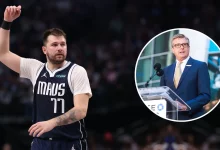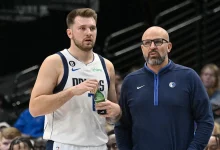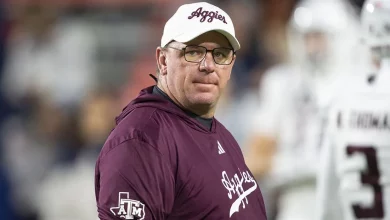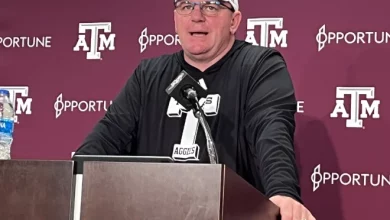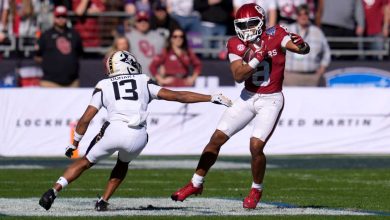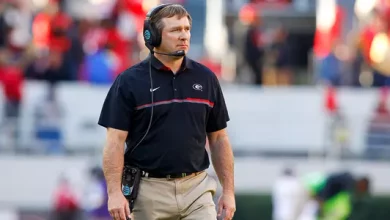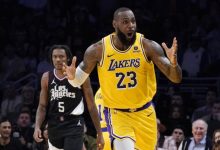Carson Beck, the former quarterback for Georgia, revealed his huge NIL deal with Miami.
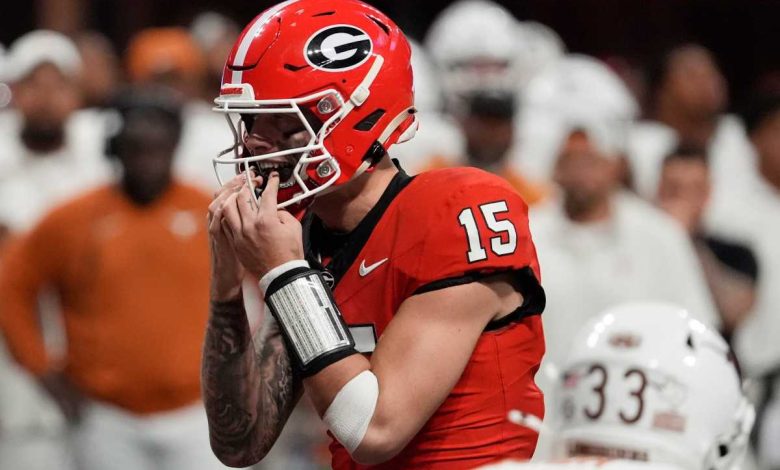
The landscape of college football, radically reshaped by the advent of Name, Image, and Likeness (NIL) legislation and the ubiquitous transfer portal, continues to produce groundbreaking headlines. The latest to capture the attention of the sports world is the monumental NIL deal secured by former Georgia Bulldogs quarterback Carson Beck, which reportedly facilitated his transfer to the Miami Hurricanes. While the exact figures in NIL deals are often shrouded in some secrecy, reports indicate that Beck’s agreement with Miami is truly colossal, solidifying his position among the highest-paid college athletes in the nation.
Carson Beck, who spent five years at the University of Georgia, was a prominent figure in the Bulldogs’ recent dynasty, serving as a backup quarterback before taking the starting reins for the 2024 season. After an up-and-down year that saw him finish with respectable statistics (3,485 passing yards, 28 touchdowns, but an SEC-high 12 interceptions) and an unfortunate season-ending elbow injury requiring surgery, Beck initially declared for the 2025 NFL Draft. However, a significant shift in his plans saw him withdraw from the draft and enter the transfer portal, ultimately committing to the Miami Hurricanes.
The pivot from NFL Draft hopeful to a highly coveted transfer portal commodity was largely attributed to the unprecedented NIL package offered by the Miami Hurricanes’ collective. Multiple credible reports, including those from CBS Sports and On3, indicate that Beck’s NIL deal with Miami is valued at approximately $4 million for the 2025 season. Some reports even suggest his combined NIL earnings over the past 12 months, including personal brand deals, could be closer to $10 million.
This staggering figure places Beck in an elite tier of college athletes, rivaling and even surpassing the salaries of many NFL players, particularly those drafted outside of the top few rounds. For context, a second-round NFL draft pick might earn an average annual salary of around $2.35 million, while a third-round pick might be closer to $1.43 million. Beck’s decision highlights a growing trend where top college players, particularly quarterbacks, are making a financially astute choice to leverage their NIL value in college for another year or two, potentially enhancing their draft stock while earning sums that would be difficult to match in the early stages of an NFL career.
The Miami Hurricanes, under Head Coach Mario Cristobal, have been among the most aggressive programs in the country in utilizing NIL to attract and retain top talent. Their strong collective, fueled by passionate boosters, has consistently demonstrated a willingness to invest heavily in securing premier players. This strategy was previously evident with the acquisition of quarterback Cam Ward in the 2024 transfer cycle, who was also believed to be one of the highest-paid transfer quarterbacks of his class. Miami’s pursuit of Beck, even after a challenging season at Georgia, underscores their conviction in his talent and their determination to land an experienced signal-caller. They reportedly made a hard run at other top transfer quarterbacks, offering over $3 million to Washington State’s John Mateer before he chose Oklahoma, further illustrating their commitment to securing a high-caliber passer.
The Implications of Beck’s Mega-Deal:
Carson Beck’s colossal NIL deal has far-reaching implications for college football:
-
Setting a New Market Standard: Beck’s reported $4 million deal, after a solid but not necessarily Heisman-caliber season and an injury, establishes a new benchmark for quarterback compensation in the NIL era. If a player of his profile can command such a sum, it suggests that the market for top-tier quarterbacks is escalating rapidly, potentially pushing future deals even higher. Lane Kiffin, head coach of Ole Miss, publicly expressed his astonishment at Beck’s reported deal, highlighting the “wild west” nature of NIL with no cap.
-
Increased Player Mobility: The allure of multi-million-dollar NIL packages is a significant driver in the transfer portal. Players are increasingly viewing their college careers with a professional mindset, weighing financial opportunities alongside traditional factors like coaching, team success, and development. Beck’s move exemplifies how NIL can convince players to forego the NFL Draft for another year of collegiate football.
-
The “Arms Race” Escalates: Only a handful of programs possess the collective resources and booster support to consistently offer such lucrative NIL packages. This creates an increasingly uneven playing field in college football, where the top recruiting programs are often those with the deepest pockets. Smaller Power Four schools and Group of Five programs will struggle to compete for elite talent on this financial front.
-
Pressure and Scrutiny: With a multi-million-dollar deal comes immense pressure. Beck will be under intense scrutiny at Miami to perform at a level commensurate with his compensation. Every throw, every decision, and every game outcome will be analyzed through the lens of his substantial NIL earnings. Former Georgia QB Aaron Murray has already publicly warned Miami about “maturity and character concerns” with Beck, adding to the pressure to justify the investment.
-
Direct Athlete Compensation: The landscape is further evolving with the impending revenue-sharing model stemming from the House settlement, expected to allow schools to directly pay athletes. While NIL deals have been through collectives and third parties, the future will see more direct compensation. Beck’s current deal bridges this gap, benefiting from a convergence of existing NIL money and the anticipation of new revenue streams.
-
“Proving Ground” for NFL Draft: For players like Beck, another year in college with a significant NIL payout offers a chance to improve draft stock, gain more experience, and potentially move up draft boards, all while earning substantial income. This essentially turns their final college year into a lucrative “professional” season before they even enter the NFL.
Carson Beck’s transfer to Miami, underscored by his massive NIL deal, is a testament to the transformative power of NIL in college football. It represents a significant strategic win for the Miami Hurricanes, who have prioritized securing a veteran quarterback to lead their offense. As college athletics continues its rapid evolution, deals like Beck’s will remain at the forefront of discussions about the future of the sport, solidifying the notion that for elite players, the college game now offers a compelling, financially lucrative alternative to an immediate leap to the professional ranks.

